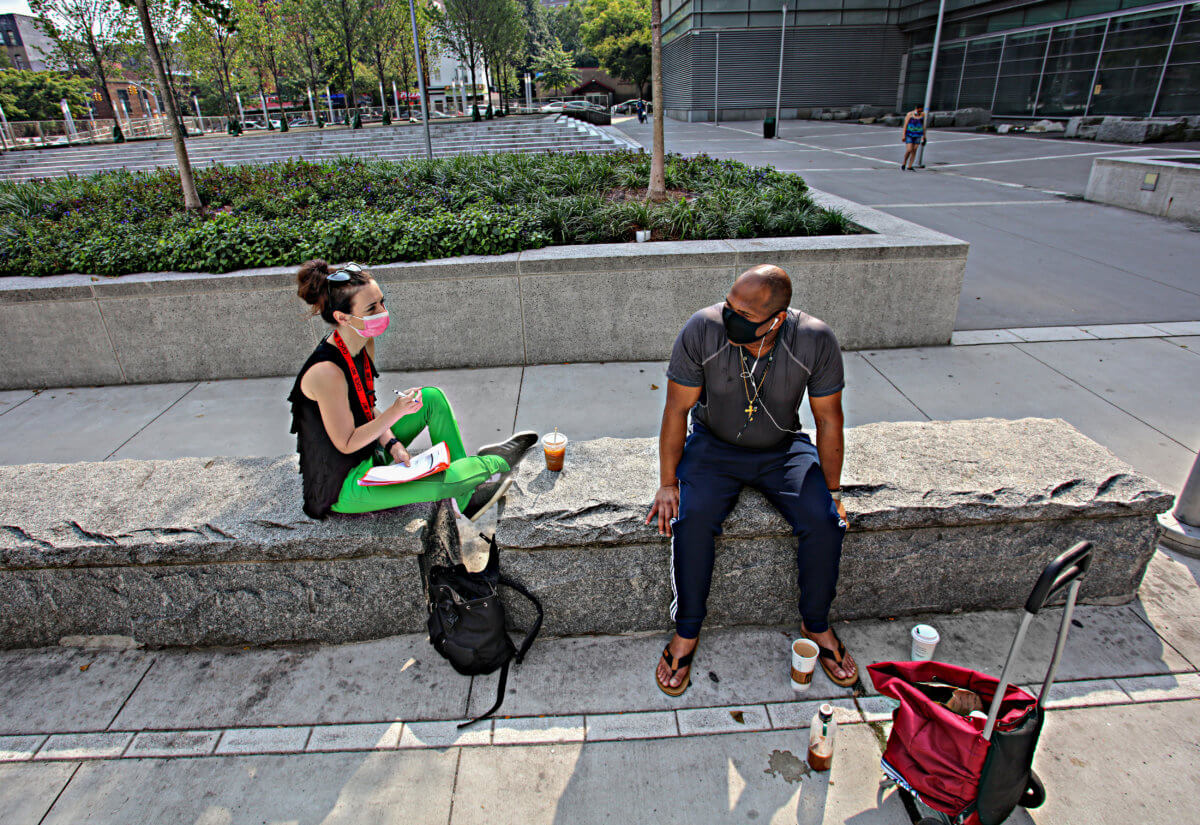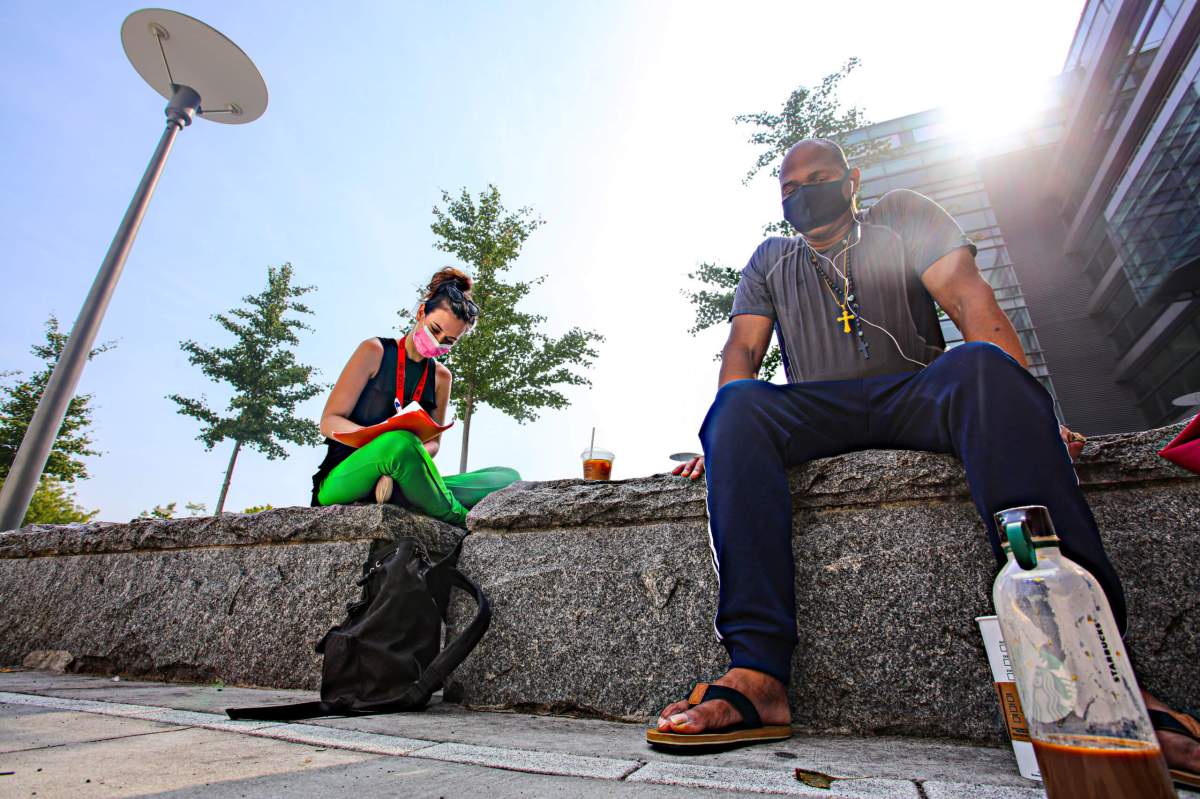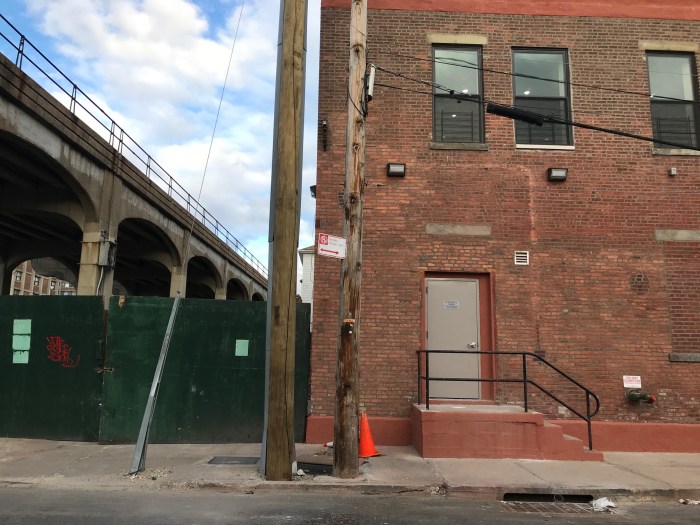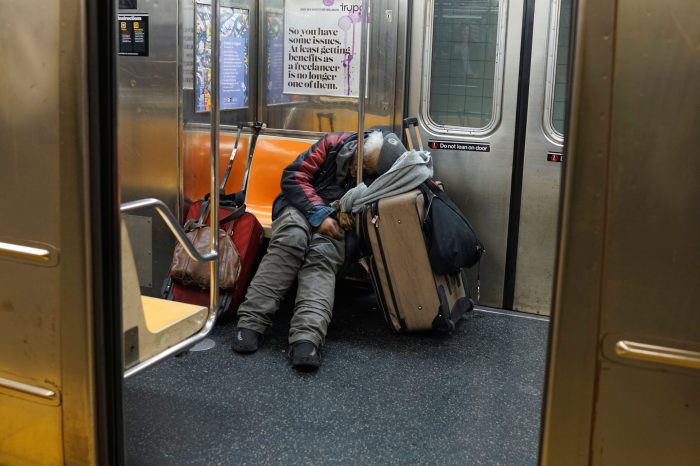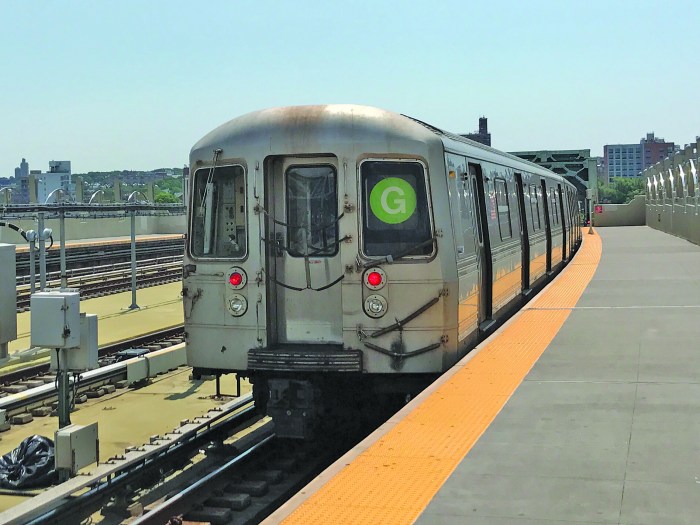Natalie Nokes meets with homeless survivor Leo almost every week in the Bronx. The pair have created a stringent bonding experience that sees Nokes walk with Leo to a nearby Starbucks while chatting to him about current events and family matters.
Smiling, the duo discussed everything from celebrities, politics, and even composting as they waited for their coffees to be poured.
It wasn’t always like this, however. Leo spent almost a decade sleeping rough on the streets and even spent time locked within Bellevue Hospital’s prison ward. It was there that an Intensive Mobile Treatment (IMT) team, of which Nokes is a member, extended a helping hand. Leo took a leap of faith, understanding that he needed assistance if he was going to overcome the situation.
“They told me they would rather give me housing than have me on the street. They were there with me in court, in Bellevue hospital and stuff like that. I wanted to get out and she [Nokes] told me that they would help with anything I needed,” Leo explained.
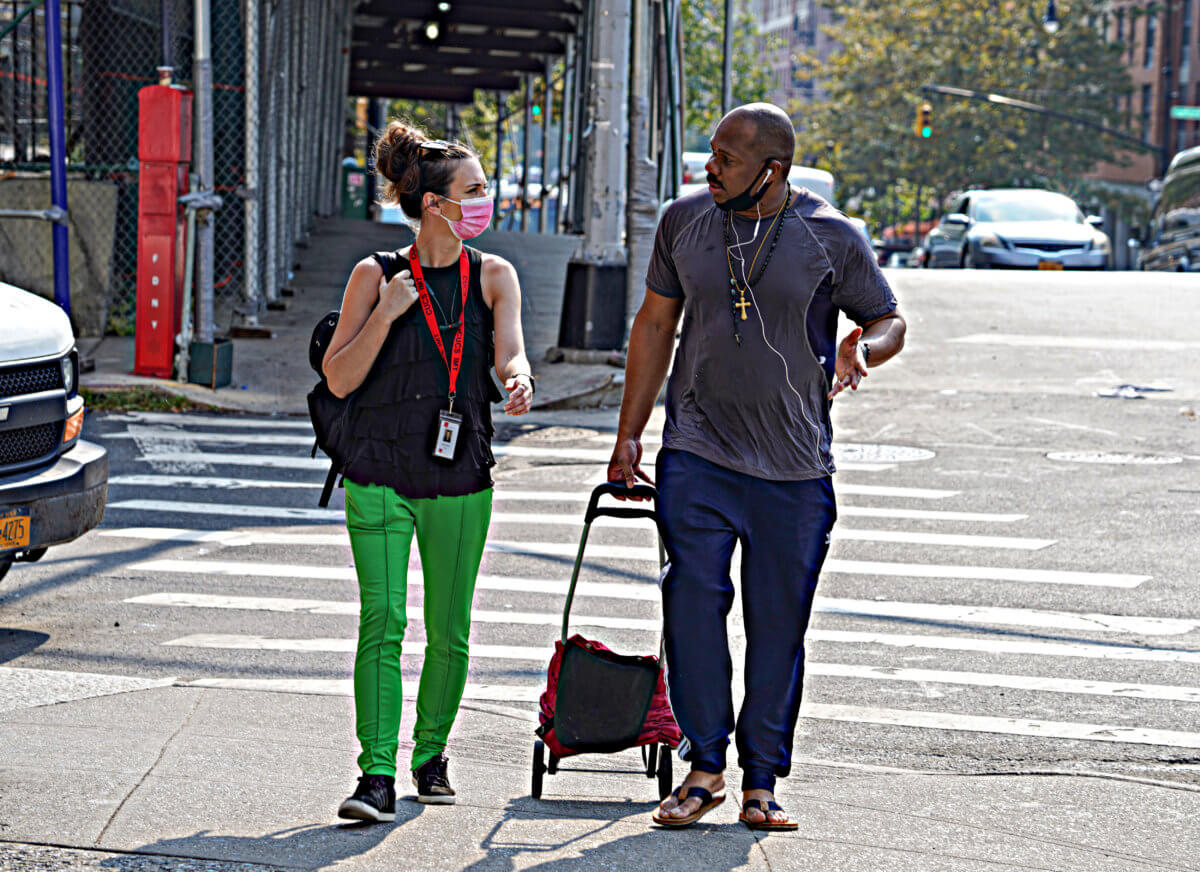
For individuals who struggle to survive after being abused, have lived in fear on the streets, and/or have become dependent on substance abuse, trust can be one of the greatest hurdles for IMT to overcome.
The homeless outreach program—which focus on frequent utilizers of the hospital and jail systems—prides itself on becoming almost a surrogate family members through a support method that aims to grant the unhoused homes, work, access to medical care, and more, allowing them to reenter society anew. Although their caseloads are small, their success cannot be denied.
During meetings between clients like Leo, it is imperative for Nokes to not only focus on exchanging pleasantries but also work on the graduation process, which will see him become fully independent.
Although Leo is currently living in affordable housing, he still requires emotional and clerical aid from IMT. In order for her clients to gain independence from the program, Nokes works on goals the clients themselves would like to achieve, which for Leo could be anything from taking medication, adopting an emotional support cat, and even applying for a new form of identification.
Perhaps the most striking factor about the exchange is the level of transparency.
With Leo yearning to make a difference in his life by taking medication that could help with mental health issues such as depression, Nokes revealed her own struggles with mental health and even what forms of medication she is prescribed to place him at ease.
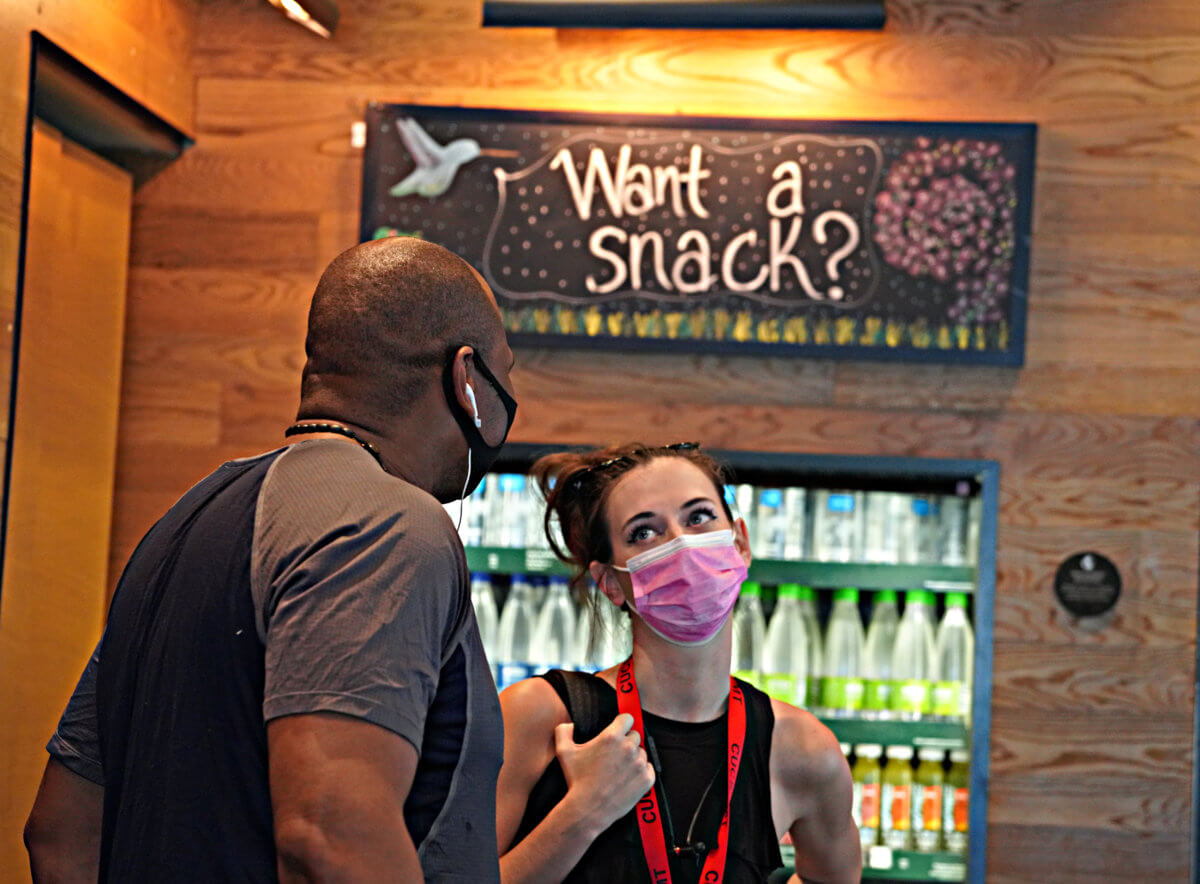
“Often these things get stigmatized, and they never see the examples outside of people in shelter or people in jail. I have people say to me that I don’t need meds and, well actually I do. It is normal,” Nokes told amNewYork Metro regarding the importance of honesty.
Leo has been meeting with IMT since 2016, when IMT was founded, and Nokes says he has come a long way during that time. What began as a constant communication has now dwindled to a once-a-week meeting, with the hope that it will drop to twice a week and so forth until he can graduate from the program.
Yet graduation is no easy feat, having a support system where many previously had none can lead to a bond not simply broken. However, according to Nokes developing freedom from her is equally as important as building the initial bond.
“It is difficult, but it is all about their development. In the beginning that can stretch out for a long time, and we will plan for that. This person may not be ready to be on their own, so it will have to be a step-by-step process. That is a skill they get to build with us, saying their goodbyes, knowing that we will come back, and there is a lot of trust in that,” Nokes explained.
Roshni Misra has been the CUCS IMT Deputy Chief Program Officer since the beginning and feels they are able to make a difference in the lives of those they serve thanks to the trust and the one-on-one moments like Leo and Nokes share.
For those who have had traumatizing experiences, Misra believes it is a great help that they can follow their client from borough to borough and connect and reconnect over the course of years with all the information in one place, so they don’t have to relive it again and again, triggering the pain repeatedly.
“We get to stay connected with them regardless of what borough they are in, regardless of what shelter they go to, even if they decide to take a break from us for a few weeks, we still get to keep them on the caseload and keep working with them. That’s what I think a lot of people need, this central hub of people that follow them and have a relationship with, so they don’t have to keep talking about what has happened to them, they don’t have to build relationships over again. They are used to being isolated and rejected but if you have this time that says we are going to keep trying, it really starts to build that trust,” Misra said.
Leo is living proof of this more humane approach to social outreach. Despite being a soft-spoken man who enjoys taking care of the environment and loves cats, he also admittedly once found himself in trouble with law enforcement, even committing assaults. He credits IMT for the change to his life.
“Mentally I wasn’t ready. People living on the street, mentally they are just not ready to go inside because they have to be responsible, and they could be people who don’t get along with other people. It means a lot to me and the other clients because there are some people who have nobody, so IMT is like family,” Leo said.
